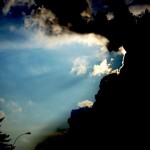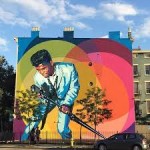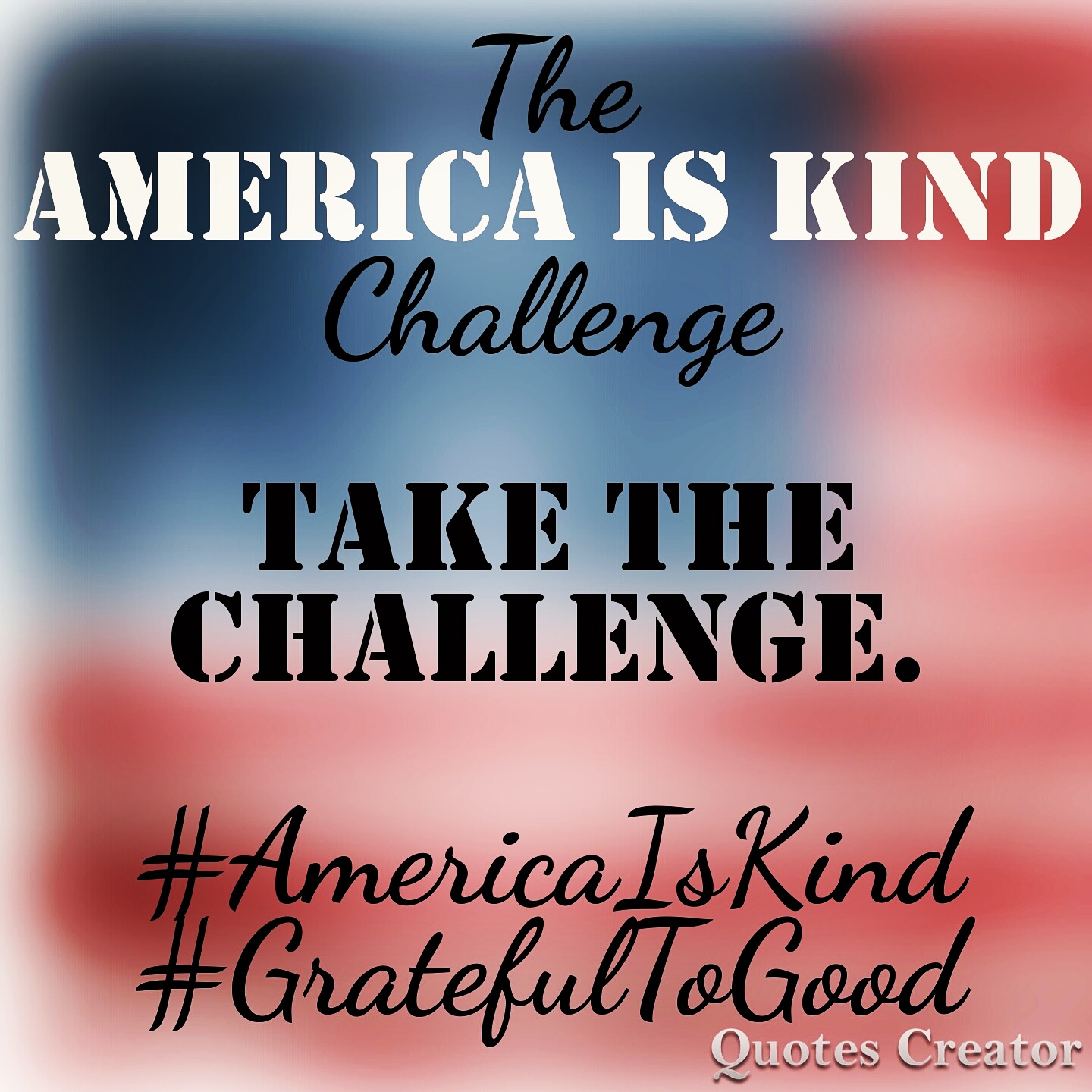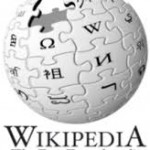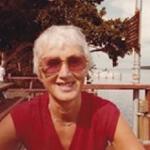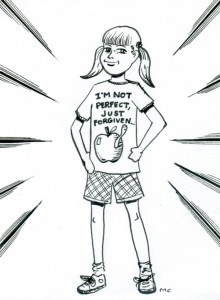
Post by Contributor Susan Gray Blue
I was born the year we landed on the moon, but I grew up on another planet entirely. Sheltered in a city nestled among Midwestern corn fields, I thought drinking wine was sinful and listening to rock ‘n’ roll put you on a fast track to hell.
I’ll just go ahead and tell you: I was raised to be a particular kind of Christian that’s fundamentalist, literalist, evangelical and earnest. No going through the motions, no marginalizing your beliefs to a weekly church service, no keeping your salvation to yourself, no wishy-washy backsliding, no skipping church for sporting events, no eating out on Sundays.
Ours was the kind of philosophy that confined the occasionally appropriate metaphor to English class and took the Bible for its words, including some rather scientifically challenging interpretations of the plot, from the creation of the world to its end.
My daytime education at a school run by a Baptist preacher was supplemented by church at least three times each week and personal Bible study and prayer time each day, as well as occasional prophecy conferences on weekends and missionary camps during summers. I learned more than your average Christian, studying church history, scriptural exegesis and the finer points of theology, including why our denomination was better than all the others, as hymns like “Onward Christian Soldiers” and “Just as I Am” auto-played in my head.
My training mix was a powerful brew. I wasn’t sure whether to cling to it like a shield or wield it like a weapon, so I did both. I became an intense little ray of manufactured sunshine and judgment. I was not one of those rebels sitting in the back pew. I believed what I was taught; I was taking notes instead of rolling my eyes, out-religion-ing anyone who had the power to hurt me.
I thought Christians were special but our kind of Christian was more special, and I regret to inform you that I thought most of you out there in the world were going to hell. And I do mean a fiery, eternal pit full of pain and suffering. I did feel bad about where you were headed but, hey, I wasn’t God — I was just someone he probably liked more than you. I took the teaching to heart, and then I took it to the streets, witnessing with my mom in Iowa and with some missionaries in Indonesia.
I went to a Christian college and carried those beliefs with me right into my 20s. That embarrassed me for a while, how long I believed it. But that’s what happened. I was earnest, and I was one of them. My indoctrination was thorough, and it worked. Until I broke its spell. It took me more than a couple of decades, but I finally saw how small and skewed my bubble of a world was. By then, I had started to move around the country to cities of increasing size, like I was lining up places by height for a picture I was about to take.
I left vestiges of my upbringing behind at each spot, first letting things fall to the wayside as if I didn’t notice and then shaking the rest off on purpose — with the kind of purpose that, if I were a medieval scribe hovering over my illuminated manuscript, I would emphasize with a capital “P.”
So yes, I lost my religion. But on the path out, I found medieval mystical poets like Hafiz and modern mystical chefs like Nigella Lawson. I didn’t understand what held the world together anymore, but I explored historic house museums and Los Angeles freeways and finally understood what Yeats was talking about. No, the center didn’t hold. I figured life likely no longer had meaning, but I had the ocean and cute Japanese notebooks. All of my friends were gone, but the bookstore clerks always seemed nice, and Paris and Oaxaca were only plane rides away.
I no longer felt above the rest of the world, but I realized that was pretty much the point. I expanded my horizons both literally and metaphorically. Then I ended up someplace else entirely, where the metaphors are bigger than planets.
Connect with Reba Riley on Facebook Twitter Goodreads
More about Post-Traumatic Church Syndrome (Available in hardback, e-book and audio formats. Paperback coming 3/15/16.)

